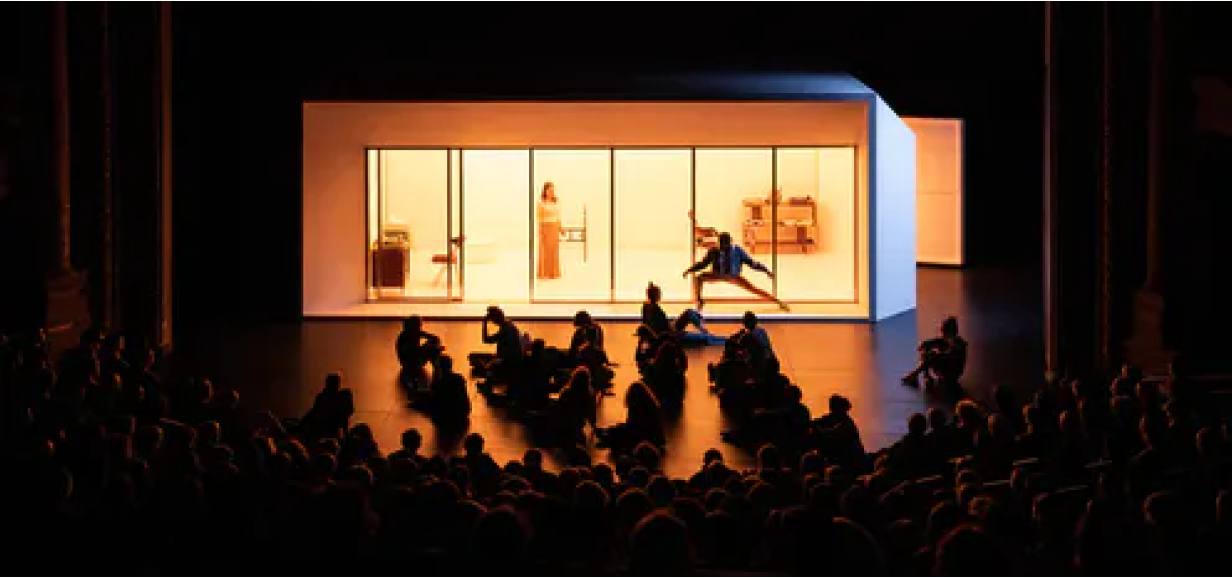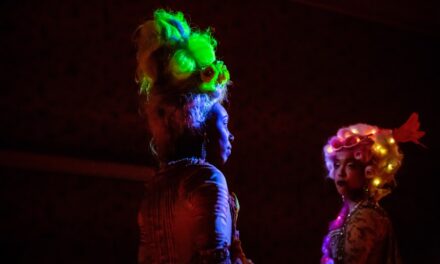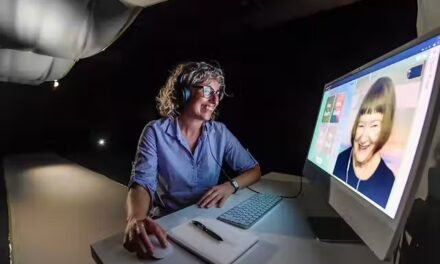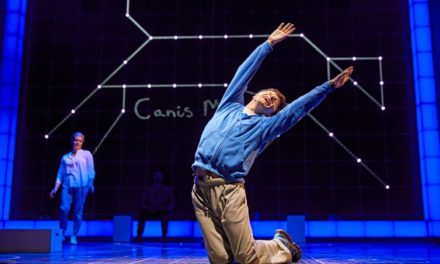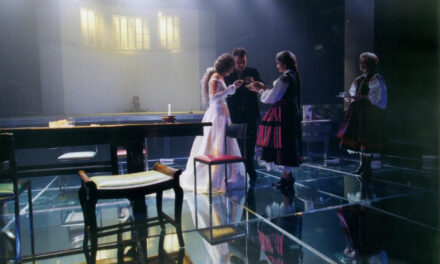We tell ourselves stories in order to live. – Joan Didion, The White Album
Theatre can be many things. It can provide a catalyst to action, help us make sense of the world, make us feel part of a broader human experience. Sometimes, what happens on stage is the catalyst. Other times it happens because of the gathering theatre creates.
I live on the south coast of New South Wales. In the two weeks before I saw The White Album at Sydney Festival there had been two catastrophic fire warnings. Many neighbors and friends left the area.
Joan Didion’s essay collection is performed by Early Morning Opera in its entirety, exploring Didion’s experience of the social, political and cultural upheaval of the 1960s.
Didion writes of the murders committed by the Manson Family, police brutality and violence against the black population, the rise of the Black Panthers, student radicalism and its brutal suppression.
The morning of the performance, with a cool change and a sea breeze, the smoke was clearing. It was the first time in weeks I felt safe leaving home, knowing there was no immediate fire threat. And yet, I still constantly checked my phone fearing a turn for the worse.
Didion was diagnosed as having “a fundamentally pessimistic and fatalistic view of the world.” Persistent, inexplicable physical symptoms led to a diagnosis of possible multiple sclerosis. She writes:
An attack of vertigo and nausea does not seem an inappropriate response to the summer of 1968.
An attack of vertigo and nausea does not seem an inappropriate response to the summer of 2020.
An Uneasy Summer
I live in a small community. Conversations with strangers on beach walks have become uncharacteristically easy and deep. We talk about headaches and tight chests and fear. The sense we have never seen anything like this before.
We share grief at what has been lost and what may never return.
Twenty young local artists performed alongside five members of Early Morning Opera, directed via radio mics. An onstage chorus, at times they watch the action, at other times they become the action.
Every performance ends with an audience discussion: the cast of volunteers in a line facing the audience. A company member instructed us this was time for the audience to discuss our responses but was not a Q&A.
Didion describes experiencing a pervasive sense of threat that led her to be suspicious of strangers and of unknown cars. She regularly took down number plates:
I put these license plates in a dressing table drawer where they would be found by the police when the time came.
One young performer described a similar fear of being attacked and expressed anger at the ways this fear constrains her.
We spoke of the suffocating vulnerability of living with the current catastrophic bushfires.
A performer described her frustration at being handed the responsibility of organizing activism when the blame for this crisis sits squarely on the shoulders of the older generations, who made up the largest part of the audience.
An older audience member responded by making the plea, “We’re all in this together, there is no young or old.”
Audience members questioned whether 1960s radicalism was possible now. Someone contrasted the optimism of the 1960s in the possibility of sweeping political and cultural change with her feelings of helpless immobility in the 2020s. Someone raged against the control of our political systems by vested interests and their media representatives.
In The White Album, Didion presents herself as a passive observer of the times. She describes the events of the 1960s austerely, as though she could leave the culture at any point.
As a result, I found it hard to feel engaged with the production. I felt more like a voyeur than an engaged witness. But the energy in the room palpably lifted when the audience discussion began. There was a desire to be with each other and try to make some sense of a world collapsing. There was comfort in naming what we are experiencing.
One audience member described feeling hopeful knowing humanity had survived the social and political upheaval and danger of the 1960s; another commented the play showed us major cataclysmic upheaval has all happened before.
Except, it hasn’t.
Everything about the current crisis is unprecedented. Unprecedented drought, intensity of fire, animal deaths.
We are in uncharted territory.
A Desire for Connection
Didion’s final words in The White Album are “Writing has not helped me to see what it means.”
Instead, maybe it is through human connection we can begin to find a way forward. Audience members were reluctant to leave once the discussion was concluded at the 15-minute mark. Conversations continued in the foyer.
As we left the theatre, a friend commented to me, “The last 15 minutes was the best part.”
We have a desire to be with each other – even strangers – during this crisis. Those 15 minutes provided the audience space to find a voice for their experience, and to be heard.
The audience bought their recent experiences with them and imbued the production with a power and meaning it might not otherwise have had.
That is what good theatre does.
This article was originally posted at theconversation.com/ on January 13th, 2020, and has been reposted with permission. To read the original article, click here.
This post was written by the author in their personal capacity.The opinions expressed in this article are the author’s own and do not reflect the view of The Theatre Times, their staff or collaborators.
This post was written by Karen Cummings.
The views expressed here belong to the author and do not necessarily reflect our views and opinions.

